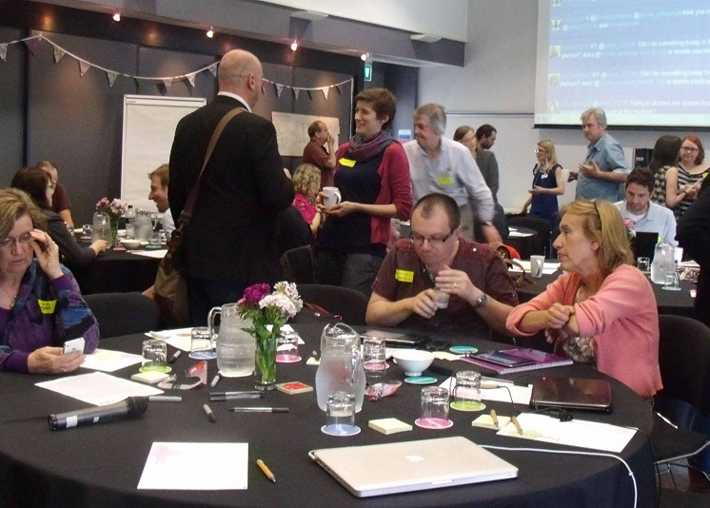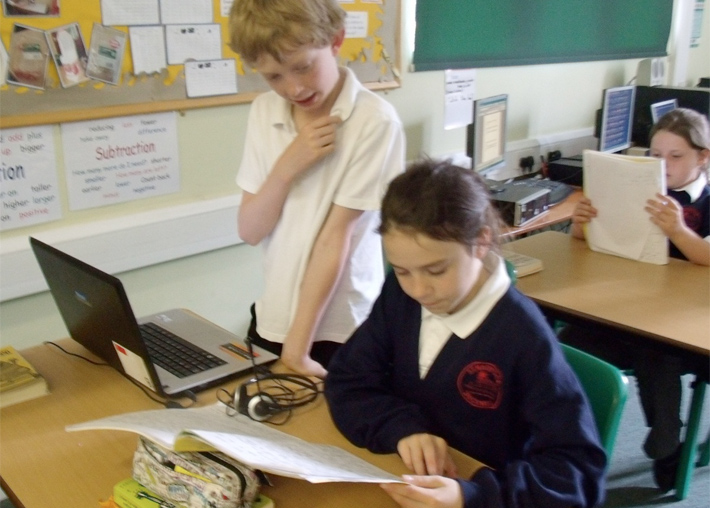-

Every course will include effective and
imaginative use of technology to enhance learning -

Specialist consultants running each course
-

We provide tailor made courses
to suit your School’s Development Plan -

We include all teaching staff and
children in the technology learning process -

And provide appropriate and effective
resources that can be used back in school

Continual Professional Development (CPD) Courses
We firmly believe that new technologies are a tool to enhance learning in the primary classroom but busy teachers need new ideas and support to realise what is possible. We therefore will make sure that every primary CPD course we run will provide resources and teaching ideas that course participants can use confidently when they are back in school.
Read more
ICT Consultancy
Primary Schools Our experienced teacher and trainer will work with managers and curriculum coordinators in order to devise an in-house CPD training programme that suits your current curriculum and technical set-up. Small Businesses We are also offering support to small businesses. Tailor made packages can be designed to suit your business. Short pop-up courses for both businesses and educators will also be announced soon.
Read more
A Creative Curriculum in Action!
Maggie is a passionate believer in having a creative curriculum within a primary school and she first came up with the idea of a WW2 evacuation project for inner city school children around 2007. Working in partnership with the Headteacher of St. Mary's Primary School Bucknell, they came up with an effective plan to implement this project.
Read moreOutline of Available CPD and INSET
Download our course and INSET booklet. In this document you will find further details about all our courses especially our popular course on how to implement the New Computing Curriculum in KS1 and KS2.
Download NowFeatured Courses
Computing Coordinators
Computing coordinators both experienced and new to this role will find this course very useful. The course is run over two days. How to assess without using levels, what OFSTED will be looking for and good procurement of both software and hardware are some areas that will be covered.
Find out moreComputer Science Curriculum in KS1/ KS2
The new computing curriculum will be introduced into the primary sector in 2014 and contains areas that may be unfamiliar to teachers within this phase. This course is designed to help all teachers who are keen to get to grips with the new changes
Find out moreCourse leader was outstanding – providing practical strategies and creative ideas."
The course was good for providing creative and practical strategies and is very helpful in defining and evaluating the role of an ICT coordinator."
This course opened pathways into science that I never realised were there. One activity on the course involved fruit. We had to make a list of adjectives on what we could see, not touch or taste. This was a perfect example of how to begin an investigation in the classroom; start with the visual aspect and then move onto other senses/experiences to build on, evaluate and cement our first thoughts/findings. I have applied this approach in the classroom (reception class) while teaching about minibeasts: we started by reading a book about spiders; described the spider in the book; looked at and discussed a picture of a real spider; talked about what spiders can do and how they do it; went outside to try and capture a spider discussing where they might live; finally caught one and the children intuitively went to find food and made a habitat for it in the container; took the spider into the classroom and are now studying his behaviour and appearance first-hand. This in depth investigative process took little time to prepare and deliver. It also helped the children to overcome their fear of spiders and helped adjust their preconceptions. The course definitely challenged my thinking about science and has made it a much more enjoyable experience for the children I teach and for me. For them it's fun, informative and hands-on, they cant believe that it's actually a lesson. The outcomes and observations produced are outstanding. I can't believe the amount of information they could absorb in such a little amount of time.
Went to Technology To Teach's course on developing self-confidence not knowing what to expect at all. I was very impressed! She turned a roomful of awkward young people (myself DEFINITELY included!) into a group of warm acquaintances, laughing and joking, sharing experiences and ideas. It was quite an innovative form of teaching, compared to what I've previously experienced - focusing on IT communication solutions, visual aids and good old fashioned discussion. After every session I went home with a spring in my step, and a smile on my face. Also, I've since successfully done a presentation to thirty business people and government executives! If you have the opportunity to work with Maggie, take it up - so, so worthwhile.
The knowledge and experience Maggie demonstrated was outstanding and I found the course very useful. It helped me to re-define my role as the ICT coordinator
